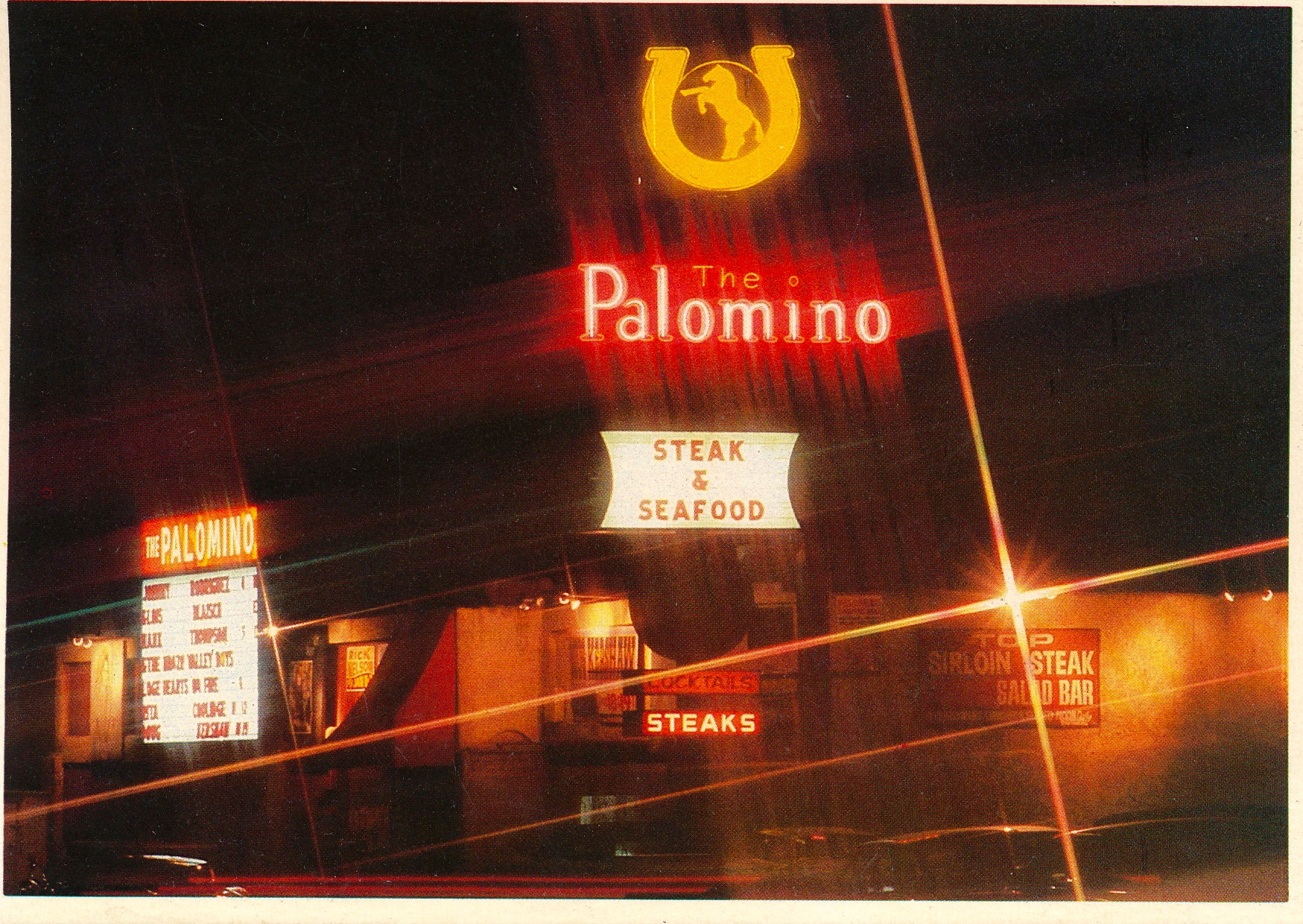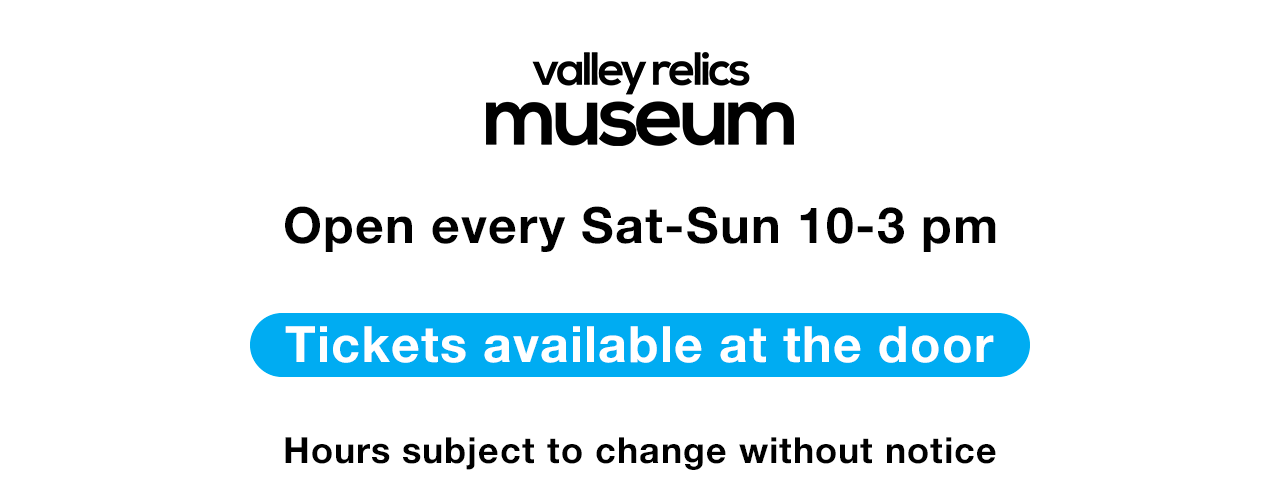Early last year, Valley Relics rescued a sign from one of country music’s most important pieces of history. For 43 years, the Palomino served as host to many of country western’s greatest stars, such as Hank Williams, Johnny Cash, Linda Ronstadt, Buddy Knox, Gram Parsons, Waylon Jennings, Kris Kristoffersen, Rita Coolidge, Emmylou Harris, and Merle Haggard, just to name a few.
History
Before settling down to what it is today, North Hollywood was known as a rather “rough and rowdy” type of town, full of cowboys, stunt men, and rodeo riders who loved to drink and fight. They were often patrons to a saloon named the Mulekick Club, which served as venue to their roughhousing until closing in 1949, leaving behind nothing but wreckage. Later in that year, country music star Hank Penny came upon the ruined building and, despite concerns toward its condition, bought the location together with business partner Amand Gautier and began reworking it into his own vision. Thus, the Palomino was born. Hank was thrilled for his new venture, installing a large neon sign and rearing bronco logo, but his blooming career made running a club difficult. In 1952, he seceded and sold the Palomino to two recent transplants from Indiana; brothers Tommy and Billy Thomas.
The Thomas brothers brought a youthful, savvy vibe to the atmosphere of the club. The Palomino, nicknamed the “Pal,” was open seven days a week with happy hour in the morning, and breakfast, lunch and dinner being served throughout the day. The lineup of musicians was solid and consistent, seeing as though they took in all the musicians other venues didn’t want. Their only real competition was the Riverside Rancho, but upon its closure in 1959, the Palomino was able to absorb all of the Rancho’s acts and clientele.
The 60s and 70s saw increasing popularity, as the club served as a rather engaging neighborhood dive. Stars often came simply to hang out and drink with regular patrons. The doors were open during sound checks, which sometimes resulted in fans getting to enjoy off-the-books performances. Dressing rooms were left open to the public and guests could chat with the bands and artists between sets. This extremely welcoming atmosphere helped turn the Palomino into a home away from home.

During the early years, things weren’t always so peachy keen. Whether it was a performer acting out or patrons getting a bit too wild, things sometimes got out of hand. Even headliners, such as Jerry Lee Lewis, were seen throwing fits of destruction. Tiny, the club’s 300lb bouncer, came in to work every night knowing he’d get into a fight. With as much booze flowing among this wild bunch, he braced himself for anything. A drunken singer riding a horse onto the stage. Bobby Bare and Gordon Terry sharing a drink before swapping fists. One night, Tiny even found himself taking an arrow 4 inches into his back. The Mulekick may have been gone but, to some, certainly not forgotten.
The 60s and 70s saw the Palomino at its prime. It was the place to be for country music fans, with the greatest of the genre performing there regularly to a full crowd. Up and coming artists earned respect and gained great confidence on that welcoming stage. A strong kinship was formed among all who walked within those doors. It was a beautiful time and experience that many still remember fondly today, decades after the club’s downfall.

Nearing the End
The Palomino would, of course, eventually find itself on hard times. Due to an exponential rise in popularity, the acts that they were once able to book for only a few hundred dollars, now performed regularly to crowded arenas. In an unfortunate turn of events, Billy Thomas died of heart failure in 1979. Brother Tommy and his wife Sherry continued on, but with the declining lineup, the club was forced to open its stage to non-country acts, including local rockabilly and surf bands. By the time Tommy succumbed to a heart attack in 1985, the club had become heavily reliant on party rentals and political fundraisers for income. Sherry continued to run the club, housing the Ronnie Macks Barn Dance beginning in 1988, but was eventually forced to close its doors in 1995.
Although the location of the Palomino has drastically changed, the memory of what once was continues to serve as a staple in the country music world, as well as San Fernando Valley’s history.
Additional reading:
The Palomino Club: North Hollywood’s Grand Ole Opry West – kcet.org
The Palomino: An Oral History – Various Interviews

